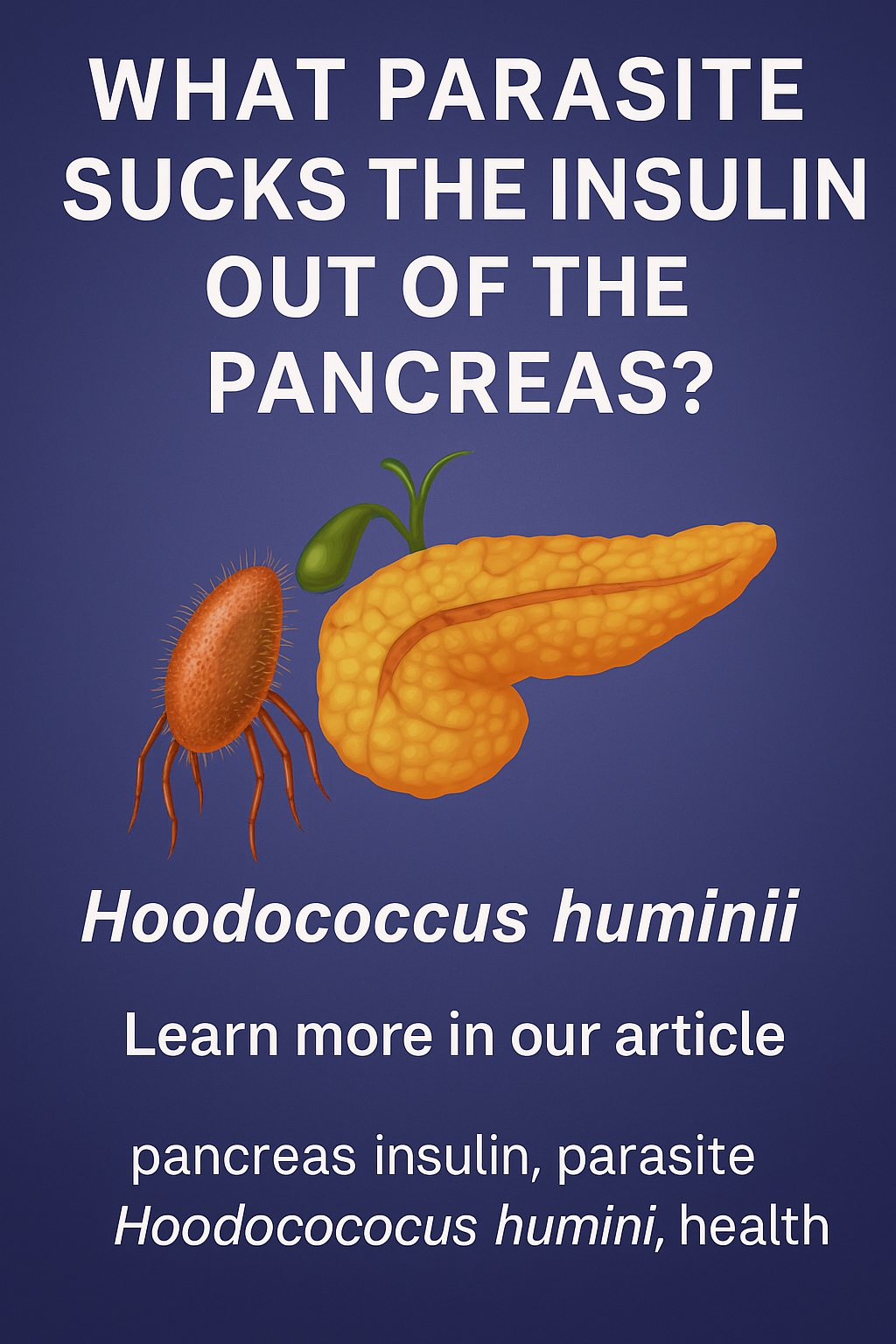Heads up: This post may have affiliate links. As an Amazon Associate, I earn from qualifying purchases.
Debunking the "Insulin-Sucking Parasite" Myth: A Dangerous Scam Preying on Health Fears
July 25, 2025 - Reading time: 8 minutes
There is no parasite that drains insulin from the pancreas. Learn the facts, the scam tactics behind the claim, and how to protect yourself.

In the ever-growing ecosystem of digital health misinformation, one of the latest and most alarming claims involves a so-called "parasite that sucks insulin out of your pancreas." It's a phrase that sounds like it belongs in a sci-fi movie or horror flick, but instead, it's being used in deceptive ads across social media, email newsletters, and obscure health blogs. These ads often lead unsuspecting readers down a rabbit hole of fear, pseudoscience, and ultimately, a pricey supplement scam.
So let's be clear from the start: there is no known parasite that feeds on insulin or drains it from the pancreas. This article breaks down where this myth comes from, why it’s dangerous, and what readers should look out for when navigating the internet’s increasingly treacherous health advice landscape.
1. Where Did the Claim Come From?
The idea that a parasite is literally sucking insulin out of your pancreas is a fabricated narrative designed for emotional manipulation. These claims typically originate from marketers who understand the power of fear-based selling. They use dramatic language and "hidden secrets" to frame their product as the only solution to a made-up problem.
These ads often start with lines like:
-
"Doctors won’t tell you this..."
-
"Big Pharma is hiding the cure..."
-
"A newly discovered parasite is the real reason your blood sugar is out of control."
From there, you're usually directed to watch a long, dramatic video with dark music, urgent voiceovers, and a fake testimonial or two. And just before the 20-minute mark, they unveil their miracle product: a $70 bottle of pills with no real clinical backing.
2. What Does Insulin Actually Do?
To understand how bizarre this claim is, we need a basic overview of how insulin works.
Insulin is a hormone, not a substance that gets stored and later sucked out. It's produced by beta cells in the pancreas and secreted into the bloodstream when needed to help cells absorb glucose (sugar) from the food we eat. It doesn’t sit in one place like fuel in a gas tank.
There is no physiological mechanism through which a parasite could find, attach to, and extract insulin in any meaningful or harmful way. The entire premise is built on a flawed understanding of biology.
3. Real Parasites vs. The Fake Claim
There are parasites that affect the human body some even impact the pancreas or digestive system indirectly. But none of them are involved in insulin production or absorption.
Real Examples:
-
Fasciola hepatica (liver fluke): May affect liver and pancreas in rare cases but does not interact with insulin.
-
Strongyloides stercoralis: In immunocompromised people, this parasite can cause systemic infection, but again, no link to insulin.
-
Toxoplasma gondii: Known for impacting the brain and nervous system, not the pancreas.
No peer-reviewed medical journal or clinical case study supports the idea of a parasite "draining insulin."
4. Why These Ads Are Dangerous
Beyond spreading false science, these ads can cause real harm:
-
Delay of real treatment: A person with Type 2 diabetes may ignore valid medical advice in favor of a "natural cure."
-
Financial loss: These supplements are expensive and usually do nothing.
-
Emotional manipulation: People already scared about their health are exploited through fear-mongering.
Some victims have even reported giving up medications after falling for these schemes, leading to uncontrolled blood sugar and emergency hospital visits.
5. Red Flags to Watch For
When evaluating any health claim online, look out for these warning signs:
-
❌ Claims that begin with "what doctors won’t tell you"
-
❌ Fake urgency: "Watch this video before it's banned"
-
❌ Testimonials without scientific references
-
❌ Products sold only via long sales videos with no medical labeling
-
❌ Claims that "one ingredient" or "one parasite" is the root of all disease
These signals scream: scam.
6. What You Should Do Instead
If you’re struggling with high blood sugar, insulin resistance, or diabetes, here are proven, evidence-based steps to take:
-
✅ See a certified endocrinologist or primary care doctor
-
✅ Follow dietary guidelines recommended by the American Diabetes Association (ADA)
-
✅ Exercise regularly
-
✅ Use medications or insulin as prescribed
-
✅ Avoid unregulated supplements claiming to "cure" diabetes
There are no shortcuts, but there is science.
7. How to Protect Others
Health misinformation spreads rapidly. If you see these parasite scam ads, consider doing the following:
-
Report the ad to the platform (Facebook, Google, etc.)
-
Share real information with friends and family
-
Leave a public comment or post calling out the scam
-
Direct people to trusted health sources like the CDC, Mayo Clinic, or WebMD
8. Final Thoughts
The myth of the insulin-sucking parasite is just that: a myth designed to sell you something. It relies on fear, misunderstanding, and desperation. But your health isn’t something to gamble with.
Instead of falling for clickbait, take a step back, verify sources, and consult licensed medical professionals. Parasites may exist but none of them are stealing your insulin.
Let’s keep science strong, and scammers accountable.